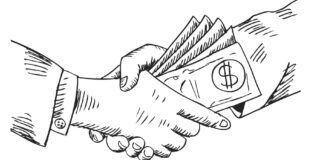
“They paved paradise, put up a parking lot.”
Big Yellow Taxi, by Joni Mitchell.
New people are moving in next door. The old house was built some 80 years ago by a “new Australian” who left the Soviet bloc post World War II, drawn to Australia by the Snowy Mountains construction project. The house is in dire need of work; it would possibly be easier to bulldoze. But is has a sturdy frame, lovely floorboards and sound foundations. The new young owners, seeing opportunity and willing to work, have decided to renovate. They see the value in the bones encased by the dross.
In a world of instant gratification, where the disposable is favoured over repair, it’s heartening to find such enthusiasm. The Sweden and Finland promote policies that favour a circular economy whereby people are encourage through financial incentives to repair and reuse items. This generates an industry for spare parts and creates jobs for repair technicians. Most importantly, repairing and reuse is an environmentally conscious approach that benefits everyone through a reduction in waste and preservation of land. It’s a humanistic approach to life that benefits most people rather than feeding individual immediate gratification through procuring a new product. Even old products retain value.
The concept of value varies between individuals and cultures. To define value a person needs to consider what matters to them. Status? Technical reliability? Expert support? Durability? Someone with a large disposable income may not care about the cost, but to be seen with the newest gadget may be more important. Someone of lesser means may favour function over appearance.
Move the discussion of value from products to accolades and the measures speak more to that person being acknowledged than the material expression of value. Take the titles that are awarded twice per year in Australia, on the King’s Birthday and Australia Day. The recognition of individuals. clearly deserving of acknowledgement being made alongside less publicly admired individuals can be contentious. The award of Companion of the Order of Australia to Scott Morrison in June 2025 was very unpopular, following his self-appointment as the “Minister for Everything”, implementation of Robodebt, holiday in Hawaii whilst the country was suffering the worst fire season in decades, and bungled procurement of the COVID-19 vaccines. Sadly it is a fact that every prime minister is nominated and all bar Paul Keating have accepted.
Then there is much publicised and highly political award of the Victoria Cross to Ben Roberts-Smith. With bipartisan support for the award in an effort to improve negative perceptions about the war in Afghanistan, Roberts-Smith was paraded as soldier of unsurpassed bravery, the family man who defended the Western values. Within a year, talk started about murders of innocent Afghans by Special Air Service Regiment (SASR) soldiers. The descent into the murky waters of a deeply unpopular war to which Australian servicemen and women were being sent at the other end of the globe drew in prime ministers from both sides of politics, from Howard and Abbott, to Rudd and Gillard. Ultimately, the Brereton report highlighted the horrors being committed by SASR in Australia’s name. Quite apart from the allegations of bullying of comrades, Roberts-Smith himself has been found in civil proceedings to have been responsible for the deaths of several non-combatant Afghans. Rather than representing the excellence of the soldier protecting his colleagues and civilians on the battlefield, Roberts-Smith has come to represent the unchecked brutalism of the indiscriminate soldier. At the time of writing, Ben Roberts-Smith retains his VC, much to the disgust of many Australians, devaluing the honour that it represents.
Now we have the United States Federal Bureau of Investigation (FBI) Director Kash Patel handing our challenge coins. As far back as the Roman Empire, combatants were paid additional money recognising exceptional battlefield performance. In some cases, the additional coins were specially minted with marks of the legion and were kept as mementos. The memento took on the function of representing a group in seventeenth century France when the Huguenots began carrying a token known as a méreau to gain passage into Protestant churches. In this way, they circumvented infiltration and persecution following the revocation of the Edict of Nantes by the Catholic King Louis XIV.
Kash Patel’s challenge coin comprises a punisher skull, spiders for pupils in the eyes and downward pointing revolvers for teeth, a clear reference to Marvel imagery. The symbol has been associated with far-right groups, including those opposed to the Black Lives Matter movement. The creator of the image, Gerry Conway, strongly opposed the use of his design by law enforcement and military who thumb their noses at the law. The coin represents a disdain for integrity and honour. It is tacky, the mark of a man drunk on his own sense of self-importance, disinterested in the divisive message underlying his tokens. The only difference from a club tattoo is that the coin can be thrown away.
The devaluing of awards and honours begins early and goes much further than the national recognitions and tokens metred out to sycophants and fools. It starts with the “gold stars” or encouragement awards that have become so ubiquitous in schools and clubs. Awards given to “encourage” when there has been minimal or no improvement when others have worked consistently are an insult to those who genuinely work hard and do achieve. More concerningly, such encouragements lower the thresholds of acceptability in the category they recognise, leading the recipients to believe that the quality of their work is sufficient to climb the heights of the field in which they are awarded. Ultimately, conditioned expectations that prove to be higher than past experience can only result in disappointment and disaffection.
Excellence – true skill, exceptional academic knowledge, extraordinary athleticism – is rare. Rarer still are the aspects of character that mark a person as someone to look up to, a hero or heroine. Many of the awards and honours that once carried genuine esteem, from trophies and medals to titles, have been devalued through the indiscriminate distribution to mediocre or craven individuals. As a society, value is compromised when no effort is required to achieve acknowledgement. Worse yet is the honour that can be bought. In a world of mediocre leaders (or worse), excellence is not a priority. That should be a matter of concern to us all, for without the drive expounded by leaders who value excellence we can expect only to see deteriorating standards across all facets of life. The tokens of success and recognition may as well be melted down or burned for they mean nothing anymore. They have become as vacuous as the people who bask in their glow.


